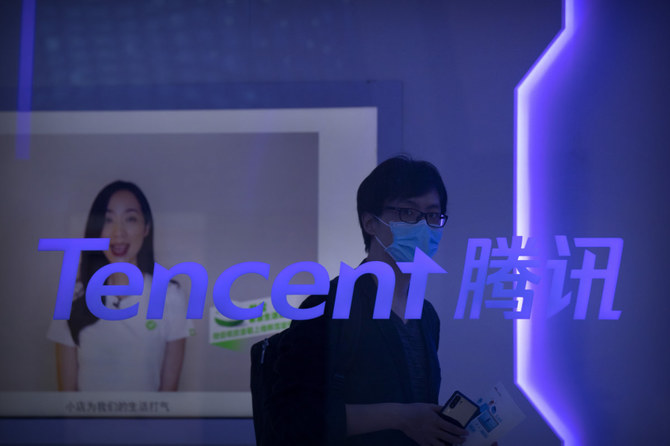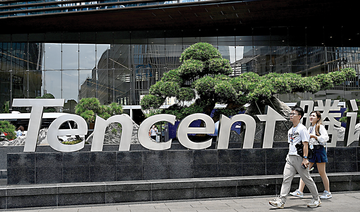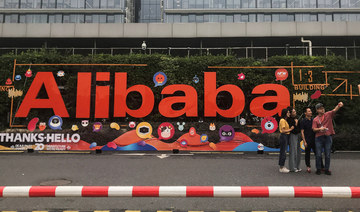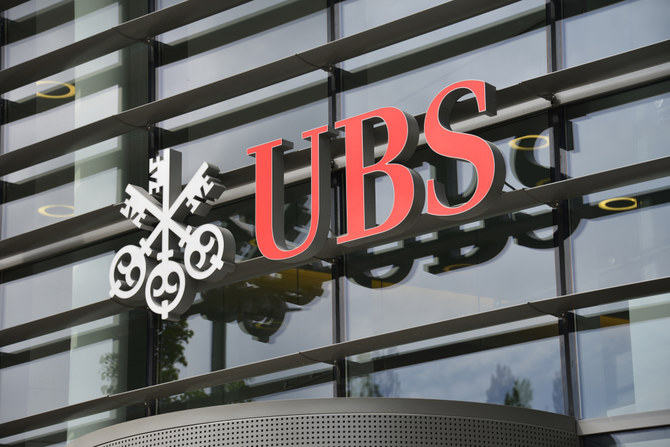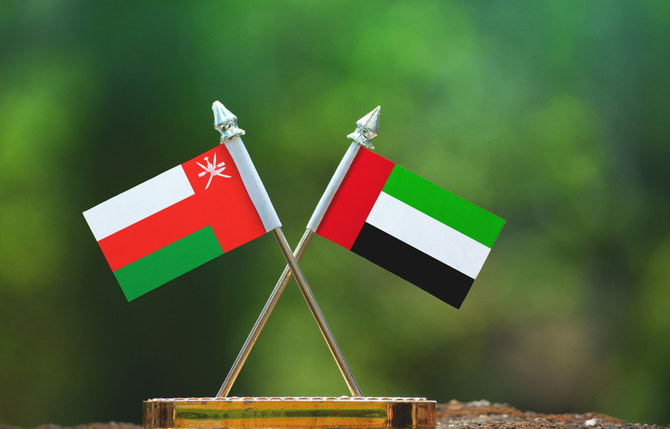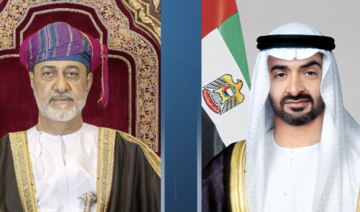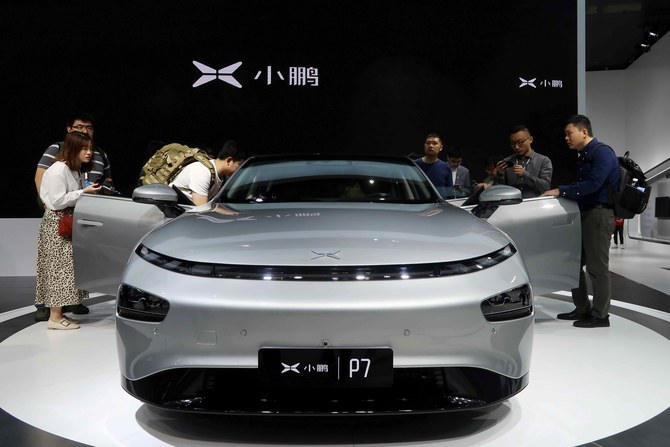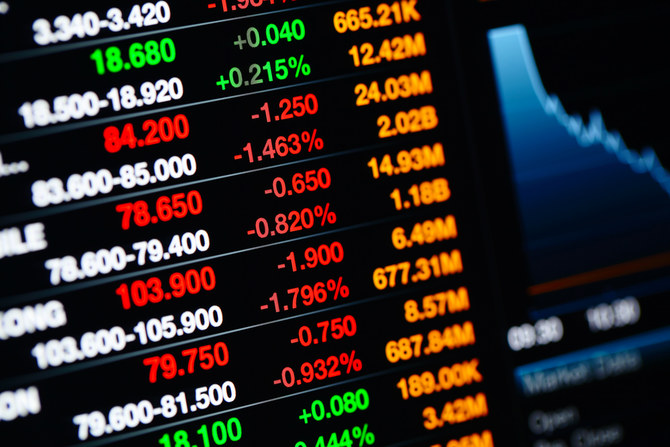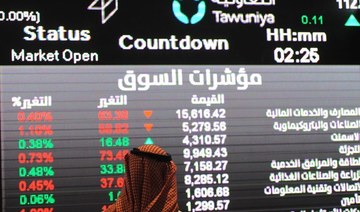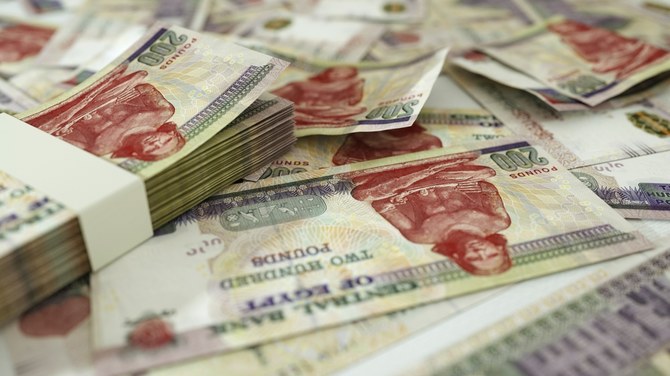BEIJING: Foreign shareholders in China’s tech companies are learning what its entrepreneurs have long known: The ruling Communist Party’s decisions about what is good for the economy can hurt your business.
The stock prices of Internet giants Tencent and Alibaba and ride-hailing service Didi tumbled after President Xi Jinping’s government launched anti-monopoly and data security enforcement actions against them.
Also this week, share prices of Chinese education companies fell after news reports that for-profit activity might be banned in core school subjects.
The crackdown on some of China’s biggest private sector success stories prompted warnings about a “war on capitalism.” But regulators say the opposite is true. They say they are protecting the public, smaller companies, the financial system and competition.
“The crackdowns are positive because they are good for Chinese SMEs,” or the small and medium-size private enterprises that are the bulk of the private sector, Michael Every of Rabobank said in a report.
Why is the Communist party doing this?
The ruling party declared anti-monopoly enforcement a priority this year, especially for tech companies that dominate e-commerce, social media and entertainment and are expanding into finance, medical services and other areas.
Party leaders worry Tencent Holding Ltd., Alibaba Group and other industry leaders can abuse their dominance to keep out competitors, raise prices or force suppliers to grant them favorable terms, hurting rivals.
The ruling party worries about the mountains of information about customers gathered by e-commerce, ride-hailing, social media and other companies.
Party leaders also have social goals including shielding children from harmful material online and promoting access to education.
Why are share prices tumbling?
The stock market turbulence reflects the gulf between the certainty craved by financial markets and the secrecy used by the ruling party as a tool to control China’s tumultuous private sector.
Chinese leaders warned in December a crackdown was coming but said nothing about what activity might be targeted. That shook confidence in Chinese stocks traded in New York, Hong Kong or London.
More competition usually leads to lower prices, better service and more economic growth. But for individual companies, shareholders worry competition squeezes profit margins and requires more spending on product development, marketing and other activity.
Investors also worry the crackdown is a signal Xi’s government wants to control the companies more tightly, possibly limiting their growth potential.
Which companies have been targeted?
Targets include the biggest companies in their global industries.
Alibaba Group, the biggest e-commerce platform by sales volume, was fined a record 18.3 billion yuan ($2.8 billion) in April for tactics that included prohibiting vendors that wanted to sell on Alibaba from dealing with its competitors.
Last week, Alibaba was among companies fined for allowing sexually suggestive stickers and other improper content to be circulated to children. Others that were punished include video site Kuaishou, microblog platform Sina Weibo and e-commerce service company Xiaohongshu.
Tencent Holding Ltd., a games and social media provider best known abroad as operator of the messaging app WeChat, is one of the world’s 10 most valuable companies, with a stock market capitalization of $680 billion.
On Saturday, Tencent was ordered to stop requiring music suppliers to give exclusive access to copyrights. The market regulator said that with 80 percent of “exclusive music library resources,” Tencent had the power to improperly suppress competition.
Tencent promised in a statement to “conscientiously abide by the decision.” That reflects the meekness of even the biggest companies before regulators with the power to shut them down.
What is the party’s relationship with business?
Chinese leaders promise to support entrepreneurs who generate new jobs and wealth but are determined to keep them under control.
The ruling party sometimes lets e-commerce or other promising industries grow for years with little regulation before stepping in to impose rules and stamp out features that don’t suit it.
In the most famous example, Alibaba founder Jack Ma in 2004 launched online payments system Alipay despite the lack of any regulations authorizing electronic payments. Ma, one of China’s most successful risk-takers, built a financial giant with hundreds of millions of users and expanded into online banking and other services.
That evolved into Ant Group, which was on the verge of a multibillion-dollar stock market debut in November when regulators ordered that suspended and told Ant to improve its protections against financial risk.
What about customer information?
Dozens of companies have been fined and ordered to tighten security for customer information or to collect less.
Ride-hailing service Didi Global Inc., whose shares debuted in New York on June 30, was ordered days later to stop signing up new customers while it overhauled data safety. The country’s Internet regulator said officials would review its company-wide “network security.”
Beijing sees customer data as an economic asset but also a strategic and political weakness if companies or foreign governments can gain insights about the public that the ruling party doesn’t know.
Regulators also worry companies might collect too much financial and other personal information about customers that might be stolen.
Then-President Donald Trump expressed similar concern last year when he ordered Chinese-owned short video service TikTok to sell its US arm. Trump’s successor, President Joe Biden, hasn’t said what he will do about TikTok.
How are share prices affected?
Didi’s share price has fallen 25 percent since its New York stock market debut June 30, wiping about $20 billion off its total value.
Tencent shares in Hong Kong are down 25 percent from a month earlier. Alibaba’s New York-traded stock is off 19 percent while online retailer JD.com Inc. is down 17 percent. Internet search giant Baidu Inc. has declined 22 percent in US trading.





